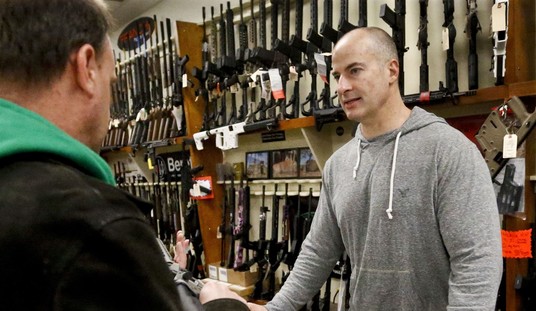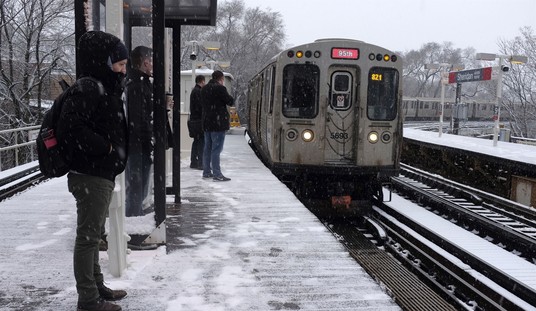We’re used to seeing lawsuits challenging various gun control laws, but this is the first lawsuit I can remember challenging a lack of gun control, or at least a lack of enforcement. A federal judge in Illinois has ruled that a lawsuit filed on behalf of several Chicago children against the state of Illinois over the violence in their Chicago neighborhood can proceed over the objections of the state.
on Monday U.S. District Court Judge Joan Gottschall issued a 34-page detailed decision denying the motion and allowing arguments to be heard on the unique lawsuit, which argues that Illinois is violating both the Americans with Disabilities Act and the Illinois Civil Rights Act by not doing more to reduce gun trafficking.
The resulting violence has caused “cognitive and emotional disabilities” in children, the suit argues, and has had a “disparate impact” of violence on minority communities.
In her decision, Gottschall said the complaint provided ample statistical evidence for the lawsuit to proceed. “It is reasonable to infer that the concentrated violence begets trauma and the psychological and behavioral injuries described in the complaint, creating discrete pockets of predominately African-American individuals disproportionately likely to be harmed by ongoing exposure,” the judge wrote.
I’ve yet to locate the judge’s decision online, but you can find a copy of the original lawsuit here. The suit seeks “declaratory and injunctive relief to limit the number of guns flowing into Chicago”, which the plaintiffs’ attorneys argue will in turn reduce violent crime in the Austin neighborhood where the kids live. The suit alleges that “police can adopt reasonable regulations” under existing law that would curb alleged gun trafficking by seven gun stores in Illinois. Many of the regulations the suit demands havre actually become law as part of the Firearms Dealer License Certification Act signed by Governor J.B. Pritzker earlier this year. The state of Illinois is actually facing a another lawsuit filed by the Illinois State Rifle Association and several firearms retailers in the state over that piece of legislation.
Gun control advocates were intrigued by the lawsuit when it was filed last year, with the Michael Bloomberg-funded website The Trace calling it an “innovative class-action lawsuit”, and claiming the lawsuit was breaking new legal ground.
The plaintiffs are wading into uncharted legal territory. They seek to prove that children exposed to violence suffer impairments so severe that the state must impose tougher rules on the businesses that supply guns.
“As far as I know, no one has ever sued the state for the health effects or mental health effects of gun violence based on a violation of the ADA,” Timothy Lytton, a professor at Georgia State University’s College of Law who has studied gun litigation. “This seems an entirely novel approach.”
Now Judge Gottschall, an appointee of Bill Clinton, has apparently bought into that novel approach, claiming that the plaintiffs have made a compelling case that cracking down on gun sales in Illinois will reduce violence on Chicago streets.
The judge acknowledged that not all guns used in Chicago are purchased here, but said the lawsuit did not have to address “every injury.”
“The complaint adequately alleges that the injunctions plaintiffs seek would appreciably diminish the rate of gun violence in Chicago’s predominately African-American neighborhoods,” Gottschall wrote.
If the plaintiffs prevail, the judge could direct the state to better enforce existing gun laws and consider other measures, according to Tom Johnson, an attorney for the plaintiffs. “The big issue in this case was whether the court would let us pursue them, and she very clearly did,” Johnson said. “We are happy. We are very happy.”
I’m sure gun control activists in the state are thrilled by the judge’s decision, which could lead to even more burdensome restrictions on firearms retailers that could force many to close. That, in turn, would be the perfect outcome for the plaintiffs, since it would undoubtably lead to fewer gun sales in the state. Contrary to what Judge Gottschall stated in her opinion, however, reducing legal gun sales won’t have an appreciable effect on violent crime in Chicago. To do that, you’re going to have to focus on the perpetrators of the city’s violence, including the two individuals currently on trial for executing a 9-year old boy in a Chicago alley. You could ban handguns tomorrow, as Chicago did between 1983 and 2010, and still you’d be left with several thousand individuals, known in neighborhoods and courtrooms alike, who are responsible for the majority of the violence that is leaving these kids terrified and terrorized.
I don’t dispute the trauma that these kids may have experienced and internalized living in a violent and dangerous neighborhood. What I absolutely disagree with is the idea that, by trying to impose more restrictions on gun stores in Illinois, you’re going to make these neighborhoods any safer. You want to make life better for these kids? Prosecute and imprison those gang members who are destroying their own communities, while offering up real help and opportunity for those who want to change their ways. It’s the fastest and most effective way to improve the lives of these good kids in bad neighborhoods, but it won’t happen through a lawsuit.









Join the conversation as a VIP Member